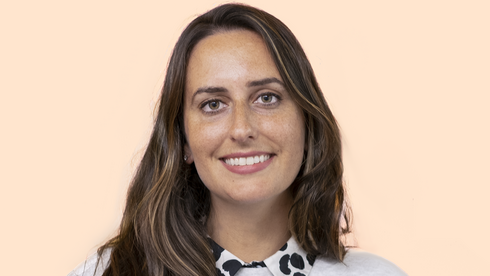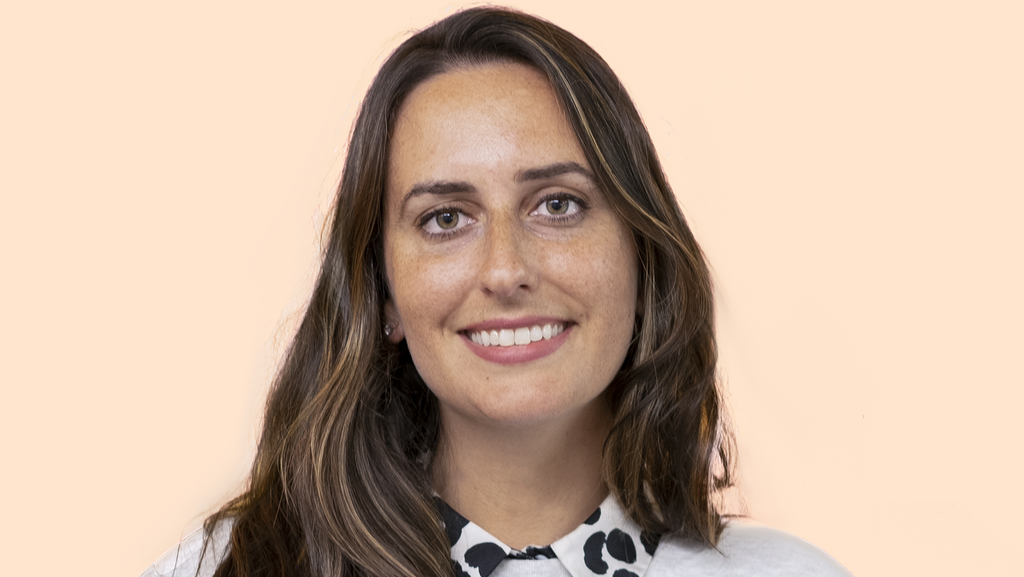
"We’re creating our own category": Israeli-Miami startup to debut gamified pet care app
Following its acquisition of Israeli startup Dogiz’s proprietary AI tech assets, Israel–Miami startup Vetted Pet Health is gamifying pet care to break into the $260 billion market, with its app set to launch in the U.S. this August.
Israel-Miami startup Vetted Pet Health has acquired Israeli-UK pet health app Dogiz as it prepares to launch its mobile platform for dog owners in the U.S. this August.
The acquisition involved the purchase of Dogiz’s proprietary technology assets, which Vetted CEO and Founder Maya Shaposhnik Cadena said provided the “tech leap” needed to deliver credible, engaging care directly into pet owners’ hands.
The Dogiz acquisition came together after Vetted CEO and Founder Maya Shaposhnik Cadena met the Tel Aviv-based startup’s founders in person. “I met the founders in Israel and really wanted to partner with them. I really believed in what they built,” said Shaposhnik Cadena.
Reeling from nearly a year in Miluim, the Dogiz founders felt they had taken the company as far as they could and began considering an acquisition offer from an Asian buyer.
“They told me, ‘We have a buyer right now… but they’ll probably just rip the technical assets and it will disappear,’” she continued.
Instead, Dogiz opted to join forces with Vetted. “They said, why don't we just do it together? We're so much stronger together. We'll join your advisory board, help you build the company, and share everything we already learned in the UK.”
“I’m really excited about it. Now we’re going to try to revolutionize the market together.”
The move comes as Vetted shifts away from bricks-and-mortar veterinary clinics to a fully digital model, with plans to position itself in the $260 billion global pet market by winning the gamification of pet care, a strategy that is now bolstered by AI diagnostic tools inherited through the Dogiz acquisition.
“The main claim to fame of Dogiz is how well they gamified the app,” said Shaposhnik Cadena.
Dogiz’s proprietary AI diagnostic features include Dr. Poop, Dr. Skin, Dr. Teeth, Dr. Eye, and Dr. Weight, which provides real-time health assessments based on user inputs. These tools sit alongside behavioral mechanics such as leaderboards, streaks, and challenges, which Shaposhnik Cadena described as “racing your friends” to see who’s the better pet parent.
“There’s all this psychological aspect to it of really just making you feel that all this care that you’re giving is rewarding you,” she added.
The drawcard of the Vetted app is a gamified system that rewards users with “Care Coins” for logging everyday routines such as walks, meals, and dental care. These coins can later be redeemed for cash-like rewards.
“The goal there is really for us to really educate and empower people to be the best pet parents they can be,” said Shaposhnik Cadena. “The way I like to describe it is, Duolingo and Strava had a baby in pet care, and it's Vetted.”
For Shaposhnik Cadena, what Vetted is developing is an example of how technology and AI can begin to revolutionize pet care, particularly by reducing unnecessary clinic visits and introducing credible triage capabilities into the home.
“That’s where I think the technology can really play a role,” she said. “Offset unnecessary vet visits with necessary ones.”
It’s a solution she believes is especially urgent in the U.S. market, where access to veterinary care is, in her words, “out of control.”
“Everything is pointing to some kind of disruption where people are not going to be able to do all their health care in a vet’s office,” she said.
With around 100 million dogs in the United States, Shaposhnik Cadena said there are only “a fraction of a fraction of a fraction of veterinarians,” and added that the average ER visit now costs more than $1,000.
Regulatory limits further restrict access to care, she said, with veterinary nurses not permitted “to do actual treatments at all.”
Meanwhile, Shaposhnik Cadena described a general knowledge gap among most dog owners. “There’s a level of naivete,” she said. “But it’s not their fault. Where would they learn?”
Vetted, she explained, is not designed to replace professional care but to help pet owners make more informed decisions about when that care is truly necessary. “I don’t see it as a replacement for a vet... but I do see it as a way to help with triaging.”
“If you’re keeping your dog healthy, you’re going to the vet less,” she continued. “With the AI tools that we have, we can tell people when it's really important to go to the vet... and when it’s like, no, nothing's wrong. Relax and save three to 500 bucks.”
With its deployment just weeks away, Vetted plans to spend the next three years building dominance in the pet lifestyle app category across the U.S. before expanding internationally, starting with English-speaking markets. Over time, the company also plans to broaden its species focus.
“One of the reasons we didn’t take the Dogiz name is because we believe we can also expand to the cat market,” said Shaposhnik Cadena.
The long-term vision is to build a global rewards ecosystem tied to pet wellness, with Care Coins eventually becoming a cross-continental, redeemable rewards currency. Shaposhnik Cadena outlined a vision of “creating the app in other languages and partnerships with global companies where you can then convert your Care Coins into cash-like rewards through those global companies, wherever you are.”
The app is free to use, supported by a three-pronged monetization strategy: “ad revenue, B2B partnerships, and long-term data monetization,” said Shaposhnik Cadena.
The latter (monetizing aggregated, anonymized behavioral data) Shaposhnik Cadena said could also help level the pet insurance market if the company succeeds in building its aspiring “tens of millions” user base. Access to real behavioral data, she argued, would allow insurers to base cost assignments on actual risk rather than assumptions, ultimately leading to fairer premiums.
“They’re just shooting blindly,” she said. “It gives proof, so that the market can be more fair.”
While there are some fringe competitors operating in foreign or adjacent markets, Shaposhnik Cadena sees Vetted as a local category disruptor.
“I would say the closest company to us is a company called Biscuit, which is in the UK, and it's spun out of a pet insurance company. Another company that I really like that is similar to us, definitely in concept and in the mission and vision and product, but not in pet care, is called Fetch Rewards.”
Ultimately, she maintains, “there’s no company that’s doing what we’re doing.”
“We’re creating our own category right now in the United States.”














